Northern Lights: A Trip To Brora And Dornoch
Fergus Bisset spent a memorable weekend playing two superb golf courses
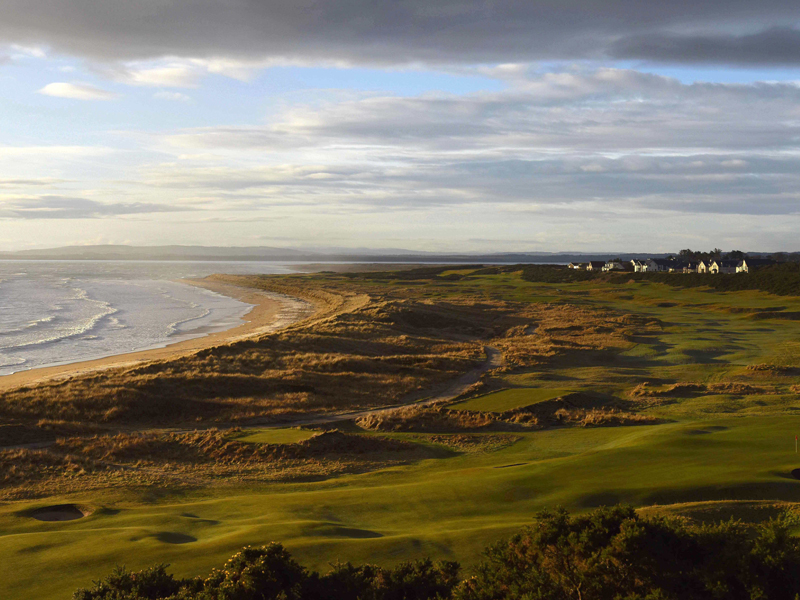

Fergus Bisset travelled to Sutherland to play two uniquely memorable courses. Here he recounts a weekend in Brora and Dornoch.
Northern Lights: A Trip To Brora And Dornoch
Friends of mine down south refer to where I live in Aberdeenshire as “the north of Scotland.”
Scots describe Aberdeenshire as the north east.
I’ve never fully agreed with that.
It’s a five-hour, 203-mile drive for me to reach the northernmost tip of mainland Scotland on its east side, but just a three and a half-hour, 180-mile drive to reach Berwick-upon-Tweed.
Surely then, I live in the east of Scotland?
Get the Golf Monthly Newsletter
Subscribe to the Golf Monthly newsletter to stay up to date with all the latest tour news, equipment news, reviews, head-to-heads and buyer’s guides from our team of experienced experts.
Anyway, I digress far too early.
Last weekend I headed towards the true north of Scotland for a couple of golfing days that will live long in the memory.
First port of call on my short tour of the east coast of Sutherland was Brora Golf Club, some 15 miles north of Dornoch and an hour or so north of Inverness.
Making my first outing onto the links there, I was lucky enough to be in the company of Brora’s secretary Tony Gill and Club President Andy Stewart.
They were able to explain some of the subtleties and nuances to be found out on the course and, although I was largely unable to follow their instructions, they at least pointed me in the right direction.
As soon as you arrive at Brora, you get a feeling for what a unique place it is.
Looking out beyond the clubhouse, the course appears like no other I’ve played.
The links forges out and away towards the Sutherland foothills with Ben Bhraggie in the west and the Ord of Caithness to the north-east.
On the day I played those heather-clad hills were backed by brooding storm clouds which only added to my sense of anticipation and mild trepidation.
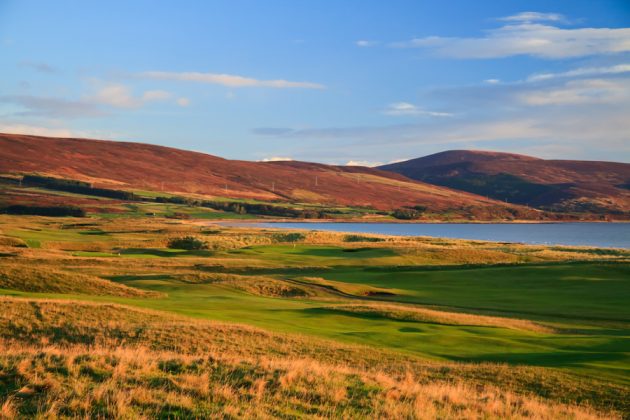
It looks like, and so it is, golf from a different era – Although Brora has, of course, moved with the times in terms of greenkeeping practices (as the marvelous putting surfaces display,) the challenge the golfer faces is much as it would have been 50-plus years ago.
Brora Golf Club was founded in 1891 and was originally nine holes, with the layout being extended to 18 in 1900.
In 1923, five-time Open champion and prolific course designer James Braid was employed by the club to redesign the course.
He did so for just £25 and the track he created remains largely unchanged to this day.
The course epitomises the great Scottish professional’s ambition to create challenging but fair layouts while making full use of the natural terrain available.
At Brora, that terrain is absolutely first class.
The links land is firm and undulating with natural swales, humps and hollows across the whole course.
Brora delivers an authentic golfing challenge with holes following the contours of the ground as they sit.
The test seems wholly unaffected, without embellishment or unnecessary trimming.
It’s little wonder then that Brora is home to the James Braid Society of which Peter Thomson was a long-time president.
One of the great features at Brora is its playability.
The rough doesn’t grow thick here like at more southerly links and, although you might be punished for straying off-line, you’re unlikely to lose a ball.
The wispy grasses are aesthetically pleasing but they won’t devour your Titleist.
It’s something I was thankful of as in, squally conditions, I watched a few shots sail towards what I thought was certain death, only to be informed by my playing partners, “That should be fine.”
What finer words are there for an anxious golfer to hear?
The layout is largely out and back with some superb par-4s heading away from the clubhouse to start with.
There’s then a 90-degree change of direction, inland to play the excellent par-3 6th.
Just 190 yards from the backs, but ominously named “Witch,” it was straight into the wind when we played, and 3-wood was not enough club!
I asked Tony on the prevailing wind at Brora.
“This is the prevailing wind 52% of the time,” he said. “So there isn’t a prevailing wind then?” I replied. “No.” … Fair enough.
One of the most obvious features at Brora is the wildlife.
As the land remains common grazing, sheep and cattle can be seen on the course and the greens are surrounded by electric fences.
Although it’s something many at the club would like to change, it undoubtedly adds hugely to the character and charm of Brora and certainly gives visiting golfers a starting point in tales of their trips here.
Standing on the 7th tee, looking out down the expanse of coastal terrain, Andy spoke of playing with a group of Americans who couldn’t understand why so much of the virgin links land was unused.
“You could get another 18 out there, a nine there, a driving range…” they said.
But I was fully in agreement with Andy that less is very much more here.
The fact the course sits amidst such a sprawl of perfect coastal terrain makes it special.
It takes up exactly the amount of space it should, no more and no less.
Back to the layout; another good par-3 marks the end of the front nine before the turn for home.
At that point you must be a good couple of miles from the clubhouse and the run in (particularly with wind largely against) is a challenging one.
The holes on the back nine are tremendous, with out-of-bounds to the right providing an added threat.
A selection of shorter and longer par-4s are complemented by a strong par-5 at the 11th and two further short holes; the testy wee 13th “Snake” and the intimidating 18th.
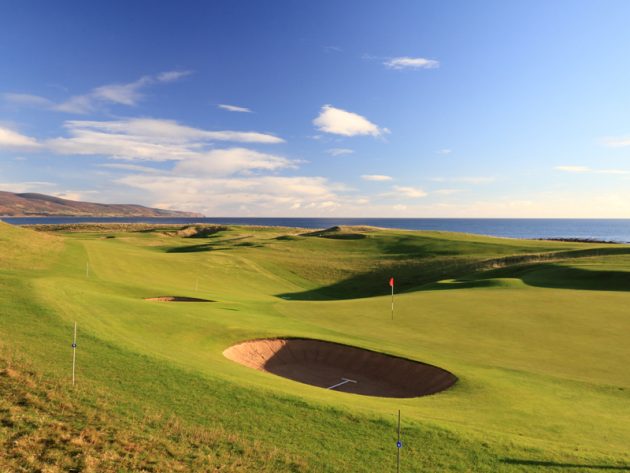
The home hole is some 200 yards with a huge swale before the green and another over the back.
If you don’t have a deft short game, it could make a bit of a fool of you.
Thankfully it only made a bit of a fool of me, as I went from the front swale through the green to the back right before a limp effort down and a limper effort for bogey.
Back in the clubhouse, after half a pint of lager I’d quickly forgotten the closing double and was happy to recall only fond memories of the rolling fairways, sloping greens with velvet-like surfaces, clouds scudding over the hills, tight lies, running drives and fresh seaside air.
This truly is a special place for golf and one without any pretension or stuffiness.
“We’re predominantly a club for the people here,” said Tony.
“We don’t go in for rules and dress codes and that sort of thing… Well, I think we do have a rule that men wear some sort of shirt in the clubhouse, but I don’t think we’ve ever had to enforce it!”
Although Brora is a town club, visitor income is important too.
The course has earned something of a cult status because of the Braid connection and, as word spreads, its natural charm and character.
The club was budgeting for significant visitor income in 2020 but Covid clearly changed things completely.
Brora was in a tough position and those in charge had to think fast.
The word went out and friends of Brora across this country and abroad responded.
People took out country memberships and made donations.
There were even nine Platinum Life Memberships taken out – at a cost of £10,000 each.
The level of response was incredible, and it provided clear evidence that many of those in the golfing world who know of Brora realise just how special and important it is.
Feeling invigorated by my breezy first experience of such a fun and natural links, I was excited to get to Dornoch, to enjoy a bite to eat and get some rest before more golf the following morning.
My lodgings for the night were superior to say the least.
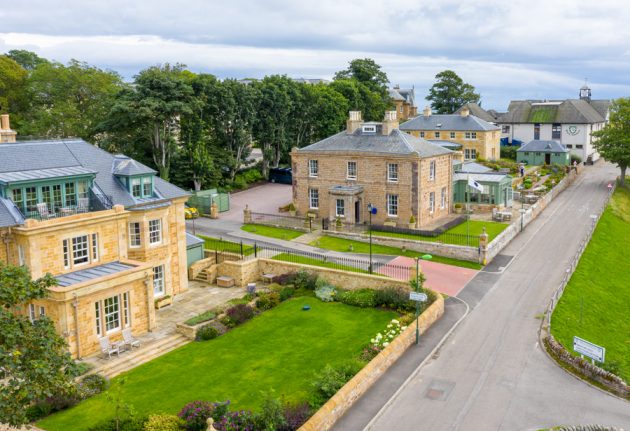
I checked in to Links House, adjacent to the clubhouse at Royal Dornoch and was shown to my “suite” – "Naver" (all the rooms are named after Highland salmon rivers.)
Links House delivers a heady blend of understated Highland styling and modern comfort and convenience.
“Naver” is adorned with subtle tweeds and period furniture, original oil paintings of Highland scenes and the odd hint of an antler!
With a supremely comfortable bed, Sky TV showing The Tour Championship, shortbread biscuits and a complementary “Negroni” cocktail… I’ve seldom felt more relaxed.
Following a sleep that Rip Van Winkle would have been proud of and a hearty breakfast, I was ready for more golf.
Teeing off at 8.30am, it was just a three-minute commute to the first tee, affording plenty of time to enjoy “Naver’s” first rate power shower, just the ticket for the weary golfer, or the golfer who needs waking up…
With the sun shining and not a breath of wind, I was feeling rather lucky as I wandered up to the first tee together with Royal Dornoch’s General Manager Neil Hampton and photographer John Paul.
Although I hadn’t experienced Brora before, I’ve been fortunate to play the Championship course at Royal Dornoch a few times and I count it as one of my very favourite tracks.
As ever, this time out it was in absolutely perfect condition with firm fairways and sublimely true greens.
There are no excuses at Royal Dornoch – it’s purely down to you to make the most of the immaculate canvas that’s set before you.
As I might have predicted, despite making the odd elegant brush stroke, I knocked the paint pot over a couple of times creating some unsightly splodges.
But it doesn’t matter. Just to be playing on this fantastic course delivers sufficient pleasure to nullify the effects of even the most potent golfing frustrations.
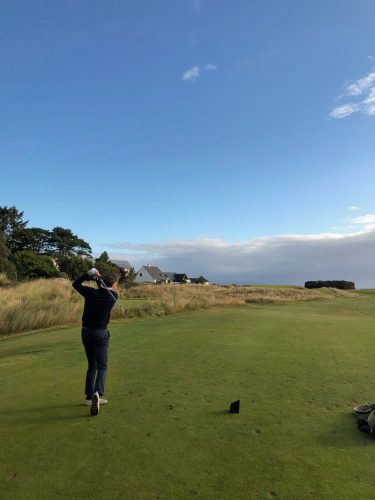
There isn’t a weak hole at Dornoch, so I won’t bore on by describing them individually.
However, it should be pointed out that a principal reason I was visiting was to see the new 7th hole – redesigned by Tom Mackenzie of Mackenzie and Ebert.
Royal Dornoch is not a club that rests on its laurels (it could so easily do so) and they are constantly looking for ways to improve their offering.
The new 7th provides great evidence of this – A slight change in direction now sends you more out to sea, towards a green sitting at the top of the hill with only the Dornoch Firth and the expansive sky behind.
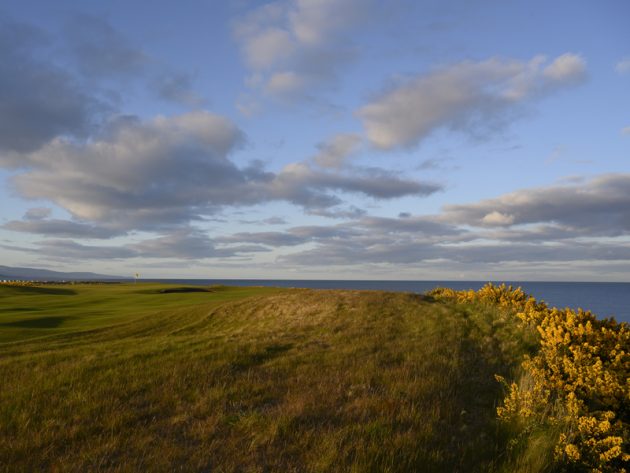
It’s a great addition and one that turns the 7th from being a testing but slightly uninspiring hole into one of the course’s most visually striking.
Playing at Royal Dornoch is a real treat, from the opening hole to the friendly “eco-friendly” halfway hut, past the famous, bunkerless, 14th “Foxy” right back to the hugely welcoming clubhouse.
Like Brora, Dornoch is a town club with a bustling and fun-loving membership that’s very much aware of the gem they are lucky enough to have.
Having enjoyed every inch of the course, as I always do, I tried to pin down why it elicits such golfing satisfaction.
The setting helps of course, with stunning sea views and panoramas to the hills inland.
But the course itself would be superb, even if it was set in an industrial estate.
The surfaces are beautiful to play from, the undulations are testing but fair, the greens perplexing but fun.
Above all, each hole is uniquely memorable (with the new 7th further emphasising that point.)
There are few courses where you can recall each hole vividly after just one or two rounds, but Dornoch is one of them.
In my opinion, it’s one of the very best golf courses I’ve played anywhere in the world.
Dornoch and Brora are just an hour’s drive from Inverness, making this little corner of north (with a bit of east) Scotland an ideal venue for a short golfing break.
Both courses are golfing pearls. Brora may be a little less polished but it’s uniquely beautiful nonetheless, while Royal Dornoch always shimmers brilliantly.
At both clubs, you’ll receive a warm Highland welcome and (I can confirm) you’ll find it very hard to leave.
If you’ve never done so, pay them a visit.
For all the latest golf news, check the Golf Monthly website and follow our social media channels @golfmonthlymagazine on Facebook and @golfmonthly on Twitter and Instagram

Fergus is Golf Monthly's resident expert on the history of the game and has written extensively on that subject. He has also worked with Golf Monthly to produce a podcast series. Called 18 Majors: The Golf History Show it offers new and in-depth perspectives on some of the most important moments in golf's long history. You can find all the details about it here.
He is a golf obsessive and 1-handicapper. Growing up in the North East of Scotland, golf runs through his veins and his passion for the sport was bolstered during his time at St Andrews university studying history. He went on to earn a post graduate diploma from the London School of Journalism. Fergus has worked for Golf Monthly since 2004 and has written two books on the game; "Great Golf Debates" together with Jezz Ellwood of Golf Monthly and the history section of "The Ultimate Golf Book" together with Neil Tappin , also of Golf Monthly.
Fergus once shanked a ball from just over Granny Clark's Wynd on the 18th of the Old Course that struck the St Andrews Golf Club and rebounded into the Valley of Sin, from where he saved par. Who says there's no golfing god?
-
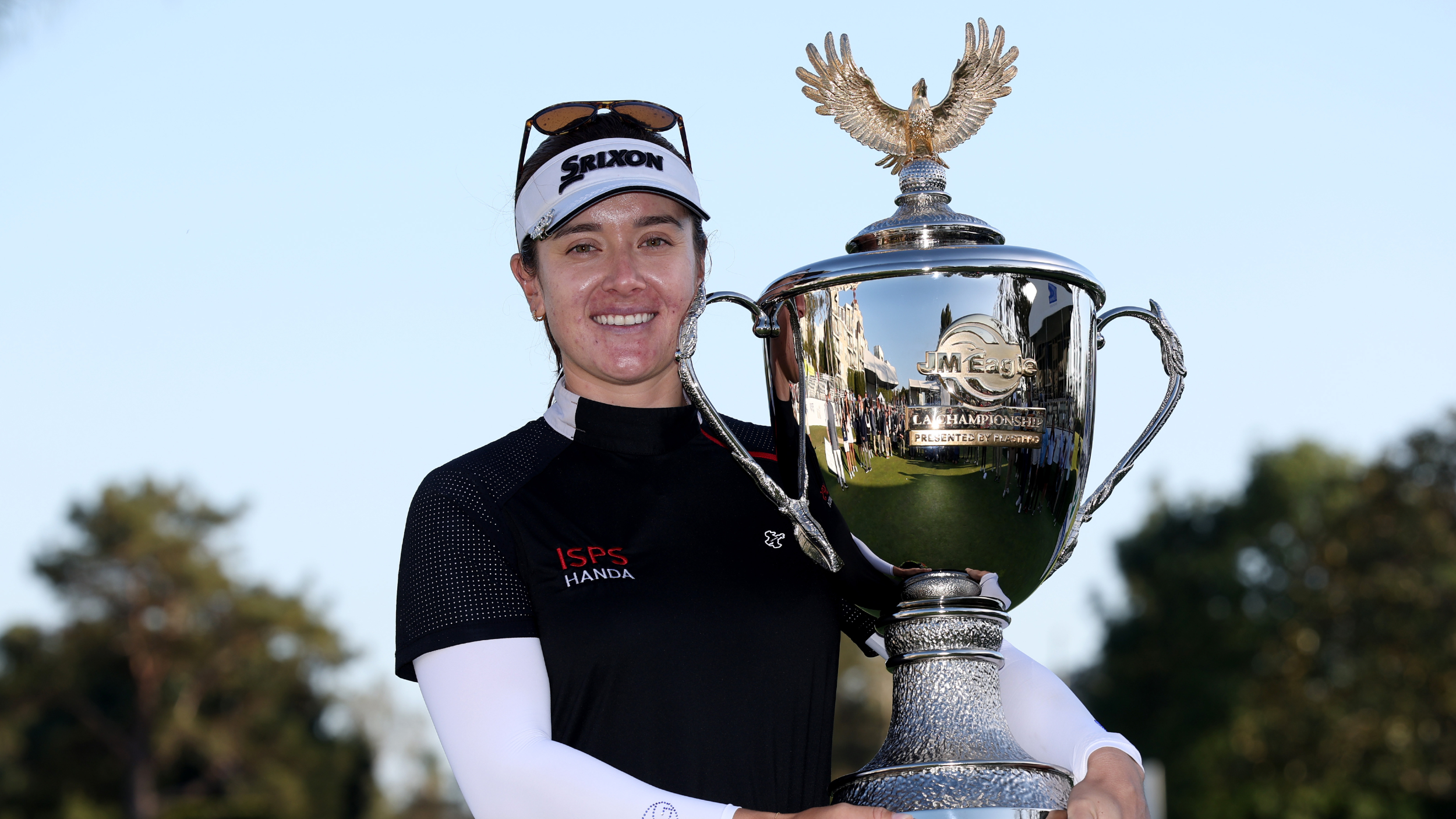 JM Eagle LA Championship Prize Money Payout 2025
JM Eagle LA Championship Prize Money Payout 2025The LPGA Tour heads to California for the JM Eagle LA Championship, where the largest prize money payout of the season so far is on the table
By Mike Hall Published
-
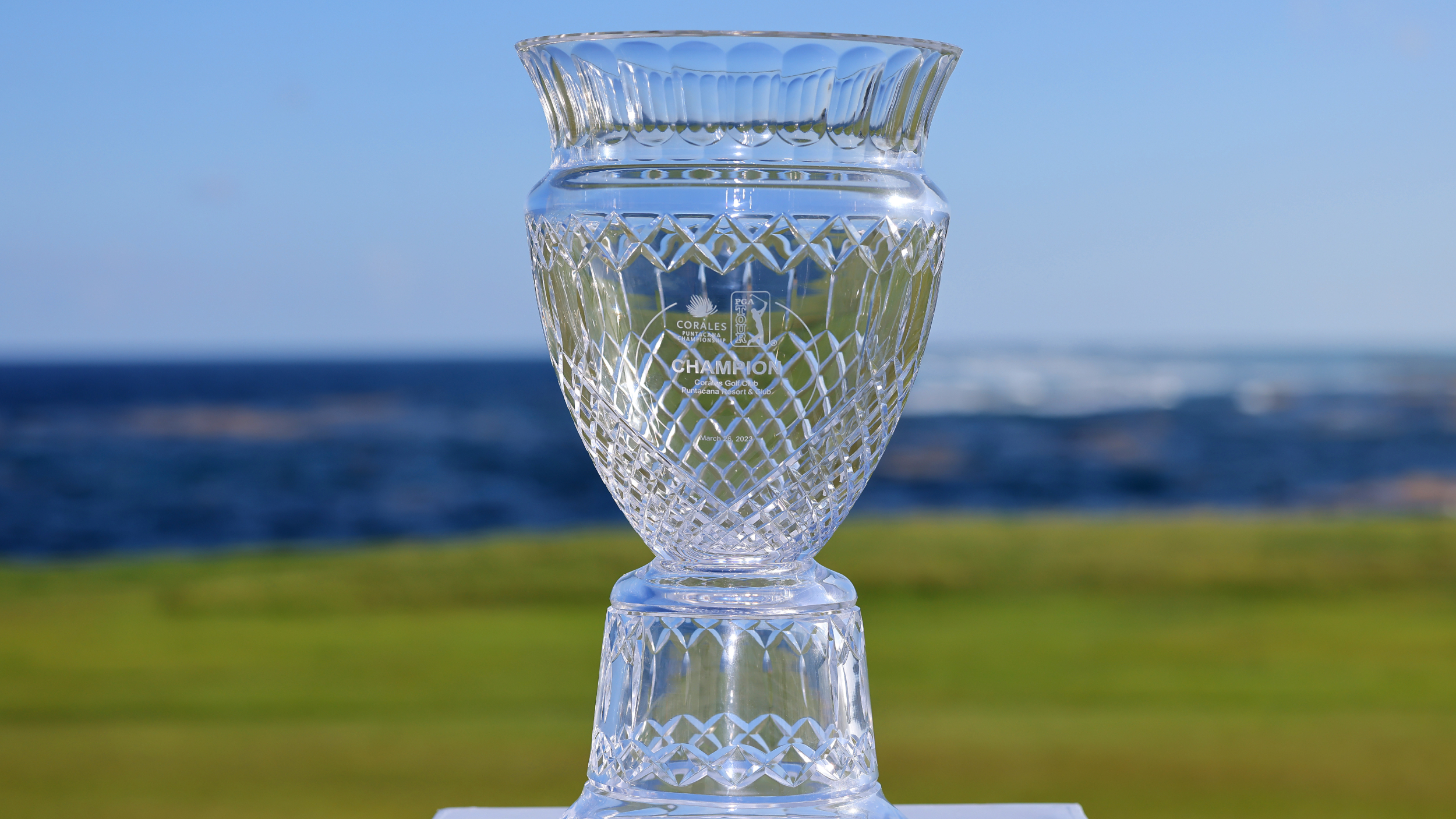 Corales Puntacana Championship Prize Money Payout 2025
Corales Puntacana Championship Prize Money Payout 2025The PGA Tour’s latest opposite field event features an attractive prize money payout and some former champions in the field
By Mike Hall Published